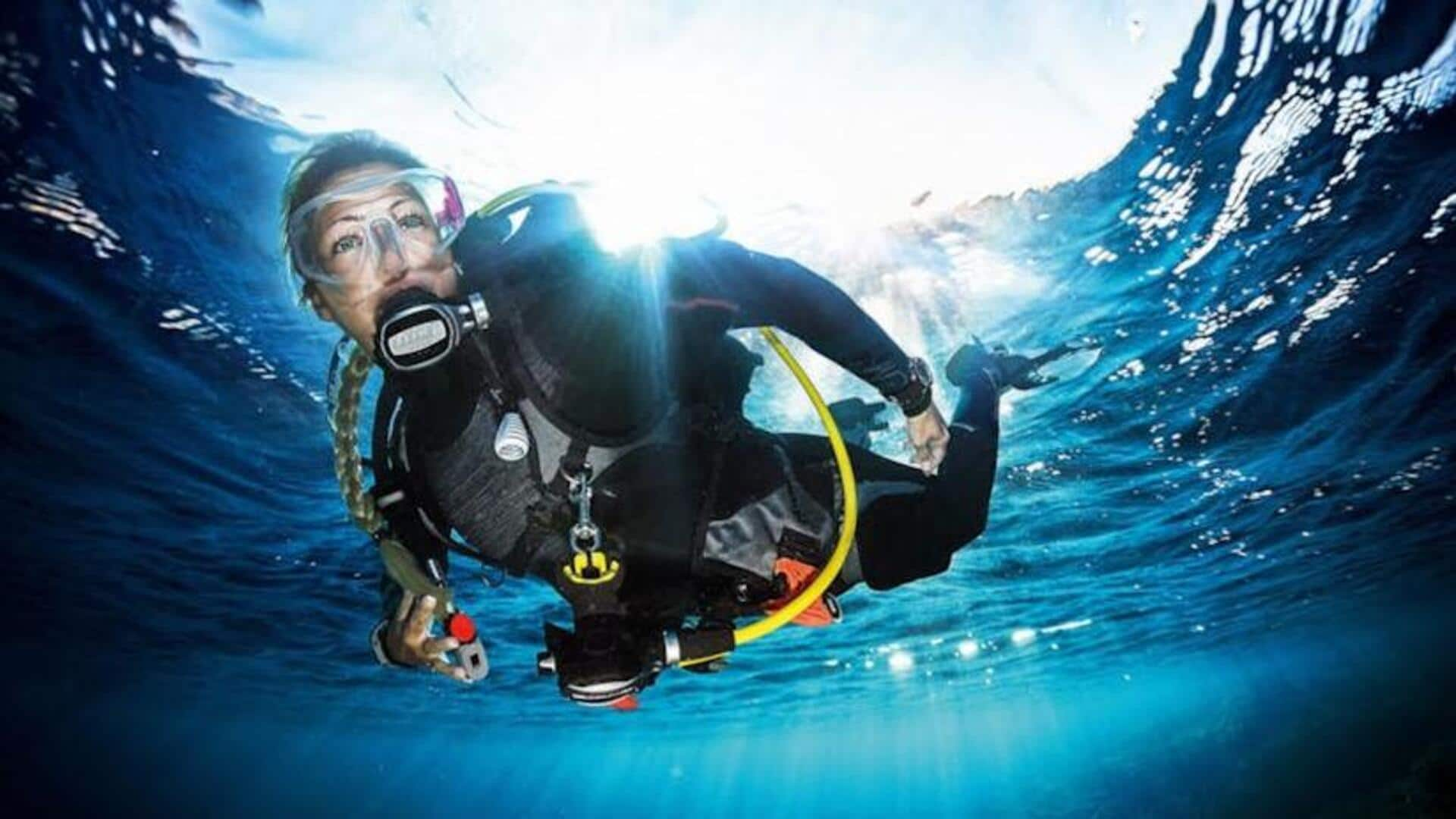
Snorkeling v/s harmonica-playing: Which is better for breath control?
What's the story
Proper breath control is vital for both physical and mental health, influencing everything from lung efficiency to stress levels.
This article explores how snorkeling and harmonica-playing, while vastly different, offer unique benefits through breath control.
It analyzes how each activity strengthens lung capacity, improves breathing efficiency, and fosters overall well-being, highlighting the versatile benefits of breath control mastery.
Lung health
Enhancing lung capacity
Snorkeling involves deep, rhythmic breathing through a snorkel tube, which can greatly improve lung capacity over time.
The resistance created by the snorkel tube makes the lungs work harder, strengthening respiratory muscles.
Similarly, playing the harmonica requires controlled exhales and inhales to produce music, training the lungs to manage air more efficiently.
Mental wellness
Stress reduction techniques
Both are very effective stress relievers, albeit through different mechanisms.
Snorkeling transports individuals to a serene underwater world, lowering cortisol levels and facilitating relaxation.
The rhythmic breathing pattern associated with snorkeling emulates meditative breathing techniques that soothe the mind.
Harmonica-playing alleviates stress by demanding focus on breath control and music production, shifting attention away from stressors and fostering a state of mindfulness.
Brain health
Cognitive function improvement
Playing the harmonica activates different areas of the brain as it involves coordination between reading music, controlling breaths, and handling the instrument.
This mental juggling strengthens cognitive functions like focus and memory recall.
Although snorkeling doesn't involve reading music or manipulating an instrument, exploring underwater environments can improve spatial awareness and problem-solving abilities.
Community engagement
Social interaction opportunities
Playing harmonica frequently involves social opportunities through jam sessions or performing with bands or groups with shared interests in music genres like blues or folk.
These social interactions enhance self-esteem and establish supportive emotional networks.
Snorkeling may be more solitary while underwater, but it is typically part of larger social experiences like guided tours or group trips exploring marine life, creating a sense of community among participants.
Body conditioning
Physical fitness enhancement
Snorkeling is a great full-body workout. It benefits cardiovascular health while being low-impact on joints, thanks to the buoyancy of water.
It works the core muscles for balance, legs for kicking, and arms when swimming against currents, contributing to overall physical fitness.
Playing harmonica strengthens facial, throat, and respiratory muscles, indirectly benefiting physical health by improving oxygen use throughout the body during other exercises.